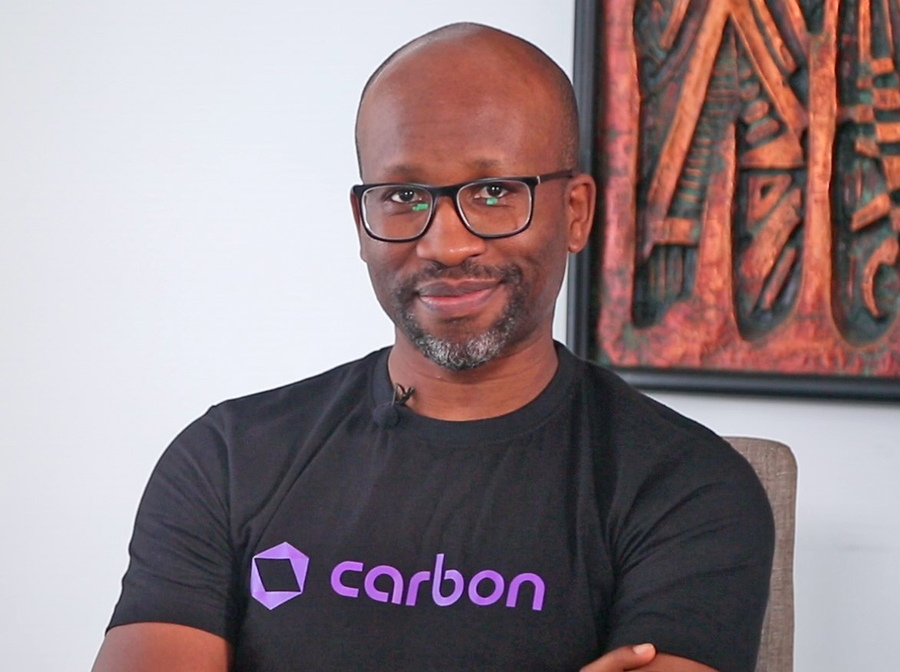News
Neobank, Carbon, Shuts Down Debit Card Operations in Nigeria

Nigerian fintech company, Carbon, has announced the cessation of its debit card operations in Nigeria, two years after their initial launch. This decision was disclosed by Carbon’s co-founder and CEO, Ngozi Dozie, via a Substack post on Wednesday.
Although Dozie did not explicitly detail the reasons behind discontinuing the card service, his post suggested that the introduction of the cards might have been a strategic misstep. Additionally, the current forex challenges, which increased the operational costs due to the dollar-denominated card expenses, likely played a significant role in this decision.
“When I take a step back with the benefit of hindsight (and a card operation bill denominated in USD$), I question why practically all neobanks are pushing cards or even getting into it. Was this the right strategy for ALL of us, or was Carbon just unlucky?” Dozie wrote.
Founders’ Errors
Dozie reflected on common mistakes made by founders, including making decisions based on insufficient information without proper analysis. He admitted that if he had thoroughly analyzed the industry, he might have avoided launching the card operations.
“Nigerians already have many debit cards,” he acknowledged. “If I had done the analysis…and truly evaluated the opportunity, I don’t think I would have been that gung-ho about pushing a strategy to provide consumers with their fifth debit card. The decision might have been the same, but perhaps with more respect for the potential risks.”
Dozie also noted that he might have believed that offering a debit card would increase customer trust in Carbon, akin to traditional banks. He advised fintech startups to critically analyze the industry before venturing into debit card offerings.
Context and Comparison
Several other fintech companies like Kuda, Moniepoint, and OPay have rolled out debit cards for their customers. Unlike Carbon, which partnered with the international card provider Visa, these companies have opted for Verve cards, providing them with a local advantage amidst the current forex issues.
When Carbon launched its debit cards in August 2021, it marked a significant step in transitioning from Nigeria’s biggest digital lender to a microfinance bank licensed by the CBN. The debit card allowed Carbon bank account holders to access funds via online and offline channels like ATMs and POS machines. Carbon aimed to enhance user experience, a common issue among customers of financial institutions, and build on its customer base of 3 million users by offering a more comprehensive banking experience.
Carbon’s decision to discontinue its debit card operations underscores the complex challenges fintech companies face in balancing innovative services with operational realities. This move serves as a cautionary tale for other fintech startups considering similar ventures, highlighting the importance of thorough market analysis and strategic planning.
News
Japanese Court Upholds Dissolution Order Against Unification Church

A Japanese appeals court has upheld an order to dissolve the controversial Unification Church, rejecting the group’s attempt to overturn a lower court ruling.
The Tokyo High Court on Wednesday denied the church’s appeal, affirming last year’s decision by the Tokyo District Court to disband the organisation following accusations that it manipulated followers into making excessive financial donations.
Japan’s education and culture ministry had argued that the group coerced members into contributing vast sums under the guise of religious devotion. The church maintained that such donations were legitimate religious activities, but the appeals court dismissed that defence.
The Unification Church — often referred to as the “Moonies” — faced heightened scrutiny after the 2022 assassination of former prime minister Shinzo Abe. The gunman, Tetsuya Yamagami, said he targeted Abe due to perceived links between the politician and the church, which he blamed for financially ruining his family. Yamagami, 45, was sentenced to life imprisonment in January and has since appealed.
The dissolution order is unprecedented in Japan for a religious organisation over a civil offence. While it strips the church of its tax-exempt status and requires asset liquidation, it does not prohibit the group from continuing religious activities.
With the appeal rejected, the order is expected to take immediate effect, though the church may still challenge the decision at the Supreme Court.
Founded by the late Sun Myung Moon, who was regarded by followers as a messianic figure, the church has long been controversial. Investigations following Abe’s assassination uncovered ties between the organisation and numerous conservative lawmakers, intensifying public and political scrutiny.
According to the district court’s earlier ruling, the church collected approximately 20.4 billion yen (about $130m) from more than 1,500 individuals.
Chief Cabinet Secretary Minoru Kihara said government agencies have been instructed to work on relief measures for victims, expressing hope that the liquidation process would proceed under court supervision to ensure swift compensation.
News
Mexican drug lord ‘El Mencho’ buried in golden coffin

Infamous Mexican drug lord Nemesio Oseguera Cervantes, widely known as “El Mencho”, has been buried in a gold-coloured coffin during a heavily guarded funeral in western Mexico.
The 59-year-old founder of the Jalisco New Generation Cartel (CJNG) died after being wounded in a firefight between his bodyguards and Mexican special forces deployed to capture him in late February.
Long regarded as Mexico’s most-wanted man, Oseguera was also the subject of a $15m reward offered by the US Department of State for information leading to his arrest.
His death sparked a wave of retaliatory violence across at least 20 Mexican states, with cartel members reportedly setting vehicles ablaze and blockading major roads.
The funeral took place near Guadalajara in Jalisco, a longstanding stronghold of the CJNG. Members of Mexico’s National Guard were deployed in force to deter further unrest during the ceremony.
Large floral arrangements were delivered ahead of the service, including a tribute shaped like a rooster — a nod to Oseguera’s reported passion for cockfighting.
The procession featured a live band playing ranchero music and narcocorridos, a genre known for songs that glorify drug traffickers. Local media reported that the traditional song El Muchacho Alegre was performed as the coffin arrived at a chapel within the cemetery grounds.
After a ceremony lasting about an hour, mourners — many wearing face masks to conceal their identities — followed the casket to the graveside.
News
US Warns of Imminent Iranian Attack on Saudi Oil Hub as Regional Tensions Escalate

The United States embassy in Saudi Arabia has issued an urgent security alert warning of potential imminent missile and drone attacks over the eastern city of Dhahran.
US citizens in the area have been instructed to shelter in place and review emergency security procedures. Dhahran, located on Saudi Arabia’s oil-rich eastern coast, hosts a US consulate and is home to the headquarters of state energy giant Saudi Aramco, making it a strategically sensitive location.
The warning comes as hostilities between the US, Israel and Iran intensify. US President Donald Trump said it was now “too late” for talks with Tehran, reinforcing Washington’s hardening stance amid continued military operations.
Meanwhile, Pakistan confirmed that at least 300 Iranian nationals have crossed into its territory as Israeli and US strikes continue across Iran. The southwestern province of Balochistan, which borders Iran, has long been volatile due to separatist insurgencies and security challenges.
Islamabad faces a delicate balancing act. While relations with Washington have strengthened in recent years — including Pakistan’s nomination of President Trump for a Nobel Peace Prize — domestic dynamics are complex. Although Pakistan is a Sunni-majority nation, it has significant Shia communities, many of whom oppose military action against Iran.
Elsewhere in the Gulf, the media office in Fujairah in the United Arab Emirates reported that debris from an intercepted drone caused a fire. Authorities said the blaze was quickly extinguished and no injuries were reported.
-

 News1 week ago
News1 week agoBritish Tourist Among 19 Victims in Tragic Nepal Bus Crash
-

 News1 week ago
News1 week agoMore than 5,000 flights cancelled as major snow storm blasts US north-east
-

 News1 week ago
News1 week agoTrump’s Global Tariff Rollout Begins at 10% Amid Policy Adjustments
-

 Entertainment1 week ago
Entertainment1 week agoRobert Carradine, dies aged 71
-

 News6 days ago
News6 days agoTram derails in Milan, leaving one dead and dozens injured
-

 News1 week ago
News1 week agoLouvre Director Steps Down Following Jewel Heist and Security Review
-

 Sports1 week ago
Sports1 week agoMan Utd ruled out signing Osimhen ‘because of Afcon’
-

 Sports1 week ago
Sports1 week agoJoshua crash driver case adjourned to March



















